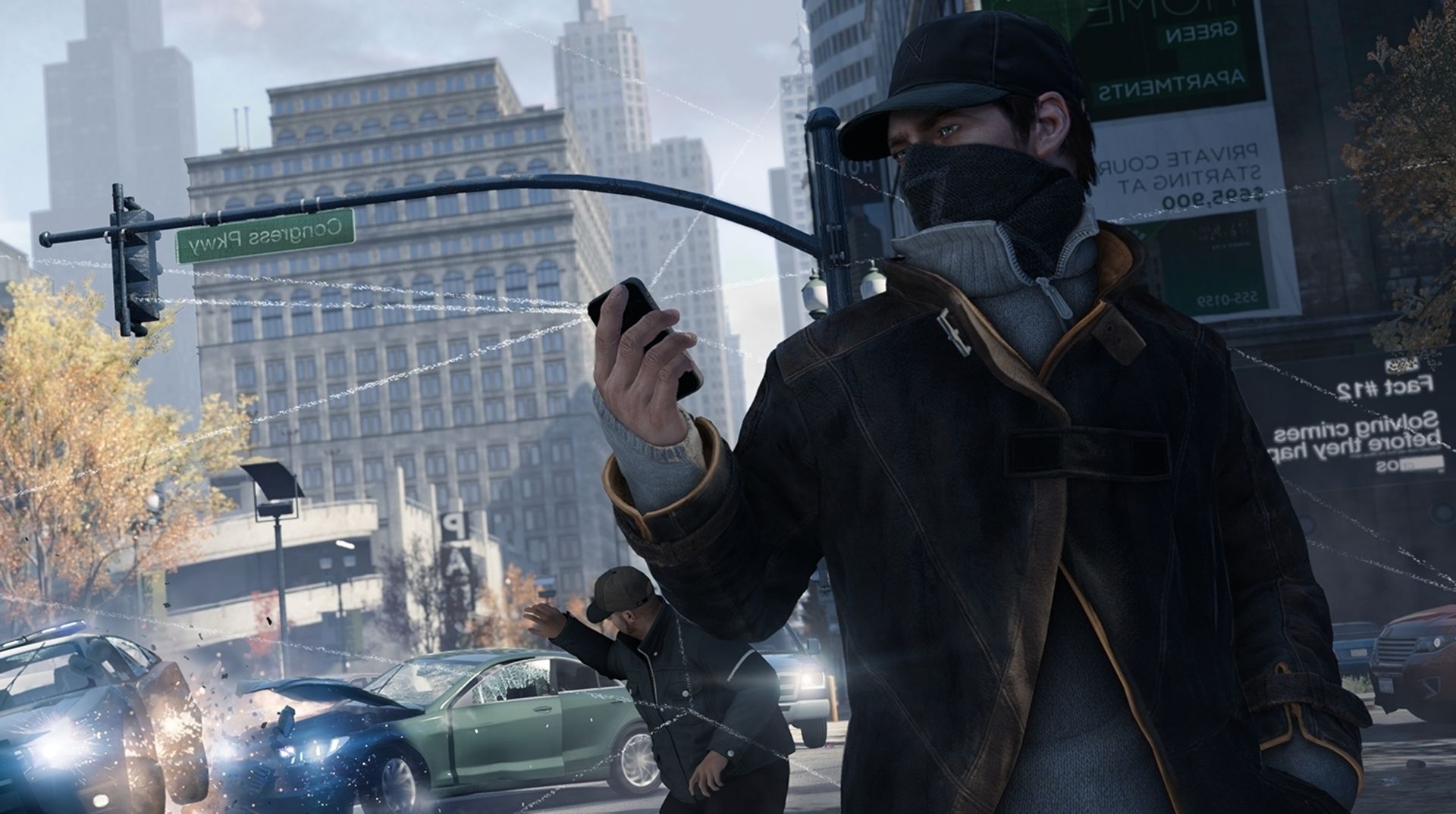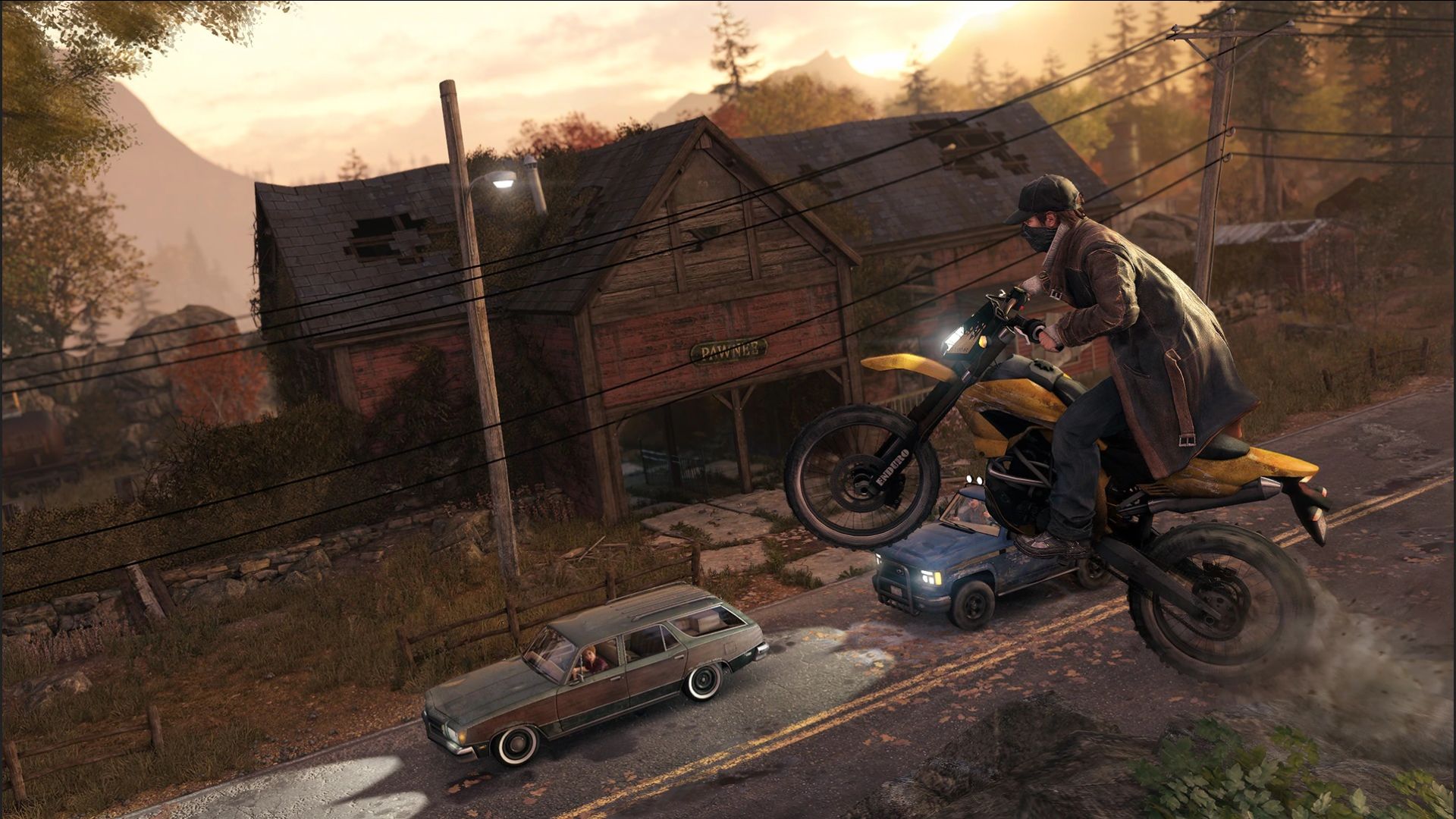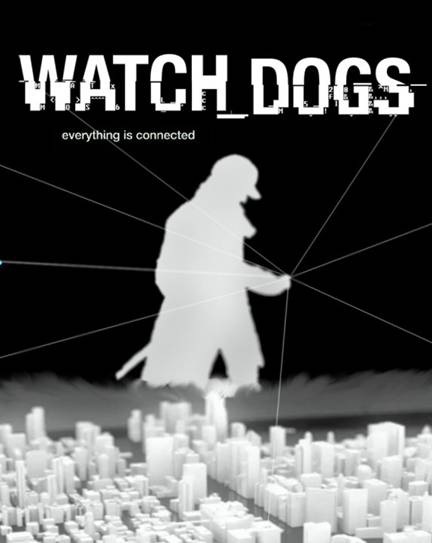
Iagine whipping out your smartphone and a few swipes later you’re in command of manhole covers, traffic lights, bollards, and drawbridges, or more nefariously, listening in on the conversations of passers-by, reading their text messages, learning their age, address, occupation, or even lifting cash straight out of their bank account with the tap of a thumb. Well, Watch_Dogs presents this world to you; a vast, interconnected city where data is extracted en masse, over-surveillance runs rampant, citizen safety is as leaky as a deflating dinghy, digital security a flimsy strip of tape over the dinghy’s puncture holes.
The powers wielded through Watch_Dogs’ player-controllable hacker Aiden Pearce and his magical phone isn’t fanciful tech. If there was minor risk your personal information can be digitally extracted from a device in your pocket a decade ago, it’s a much realer concern now. In fact, the most far-fetched aspect of Watch_Dogs’ hacking is the instantaneousness of it. Even today in 2024, it’ll take more than a few swipes of a smartphone to turn traffic lights from green to red, but the power existed back then, and exists tenfold now.
When we approach the subject of whether Watch_Dogs was ahead of its time ten years ago, we’re not talking about its graphics or gameplay, its narrative, the detailed minutia of its open world or, as it is, the headline mechanic of hacking anything and everything. We’re talking about its overarching themes: the merits and limitations of emergent technology and the backdoors it leaves unlocked, the potential for security breaches, data leaks, the loss of privacy, public authority corruption, and the ramifications this has not only on individual citizens but society and democracy at large.
Taking place in a fictionalised near-future Chicago, a city with a centralised operating system in touch with everything, harvesting data from buildings, public services, and its citizens, where everything is a unified asset reduced to numbers. The potential pitfalls of a technological monocracy such as the Chicago in Watch_Dogs mirrors contemporary concerns surrounding the emergence of smart cities. For example, a business-first approach may lead to corners being cut where security is concerned, the potential stupefaction of the population who become complacent in their over-reliance on technology, and high levels of data collection leading to over-surveillance of the populace. A worry with smart cities relating to that last point is that mass collection and analytical analysis of citizen data could lead to predictive policing, or at the very least an avenue towards abuses of power by law enforcement.
Our morally grey protagonist wields this power at will in one of Watch_Dogs’ numerous side activities. These Crimes Detected side missions involve Aiden halting delinquents before they’ve committed any wrongdoing. Following a notification popup Aiden can scan and profile civilians in the area, with the potential perpetrator’s presumed future actions being whittled down to a percentage chance. If the potential is over 50%, then you’re likely to take this person out, as logically you’ll think there’s more chance a crime is going to happen than not.
It’s unlikely players will even stop to consider the moral ramifications of such a process. After all, Watch_Dogs is an entertainment product first and foremost, and side activities such as these are quite fun. Still, does Aiden Pearce, an expert hacker with a self-centred thirst for revenge, deserve this power? And if not, who does, if anyone? Is this an example of invasive technology being used for something noble? Or as is likely the sceptic’s opinion, is there too much nebulousness in a percentage to reliably predict someone’s actions before you exert lethal force under the guise of a vigilante? A vigilante, who let’s not forget, can easily syphon money out of your bank account.
Watch_Dogs at least tries to posit the moral quandary in Aiden’s actions. As revealed when profiling bystanders, some of these people are struggling with child maintenance payments, are unemployed, or just down on their luck, thus making you consider if stealing their money is worth the resulting guilt. But, by and large, Aiden isn’t a good person, even if you did decide to play him as someone decent. His actions lead the very people he’s crusading revenge for into mortal danger, his selfishness in righting the wrongs befalling his past leading only to more bloodshed.
This could be a point the developers were aiming to make though. Our expert hacker Aiden masks the bottom of his face and dresses in a dark trench coat. His accomplices sport tattoos and mohawks. They’re the stereotypical image of a hacker, one who’s more entrenched in criminality than using their skills to highlight technological concerns.
In the real world, some hackers are problem solvers. Read interviews with how lead developers together with his science-minded associates and you’ll see the developer’s stance isn’t to perpetuate the myth that hackers are exclusively wrongdoers. No, after attending DefCon – the annual US-held hacking conference – the developer learned that an idea for Watch_Dogs which the team deemed too extreme and cut from the finished game was in fact a real-life hazard that hackers were able to expose. The team brainstormed the idea of being able to access an in-game prison’s security system, but attendees at DefCon demonstrated that a skilled real-life hacker could indeed pull this off, unlocking cell doors, releasing inmates, inciting riots and escape in the process. Also, at DefCon, an attendee’s presentation consisted of remotely hacking into a US city’s traffic light system and controlling an intersection’s signals from miles away. The company responsible for developing this intersection’s traffic sensors were telephoned during the presentation but denied their system wasn’t encrypted.
The developer describes in a separate interview about their trepidation in 2009 surrounding the emergence of smartphones, their promise of a convenient future loaded with question marks. This trepidation has led to Watch_Dogs’ prescience; for example, a year after Watch_Dogs was announced there was a leak of a highly classified information regarding surveillance programs, and during Watch_Dogs 2’s promotional run controversy emerged surrounding social media’s influence. These aren’t examples of the developer assuming things about the future, they’re the result of good research. The technology they were building into their game mechanics had to be grounded in the real-world.
To be frank, most sci-fi isn’t about flashy things like flying cars, laser guns, or cities stuffed with neon signs. Good sci-fi is to adopt contemporary concerns and demonstrate them in present day, in near or far-flung future. To take these ideas and push them as far as possible, exploring the ramifications in the process. It’s just that, sometimes art uncannily imitates life. No matter your stance on Watch_Dogs’ gameplay, graphics – which yes, whilst holding up quite well are still undeniably a downgrade on the 2012 E3 presentation – narrative, and characters, the game could be considered as important a sci-fi touchstone as any form of media, from Blade Runner to Deus Ex.
Exploring contemporary concerns was nothing new, but in presenting them plainly, without too much glorification, Watch_Dogs succeeds in portraying its ideas in a way that was ahead of its time. Some of the concerns with smart cities, a city run by single operating system for instance, is still unlikely to happen, but the repercussions of what is possible are explored in Watch_Dogs that is both entertaining and alarming. It took inspiration from the real world and amplified it, morphed into something that’s too likely for comfort.
Note: The views expressed in this article are those of the author and do not necessarily represent the views of, and should not be attributed to, GamingBolt as an organization.

















